How will tourist island of Bali survive without influx of Aussie tourists
Empty beaches, abandoned resorts and no tourists - coronavirus travel restrictions have turned Bali into a ghost town. With no end to the pandemic in sight, will Australia’s favourite holiday spot ever be the same again?
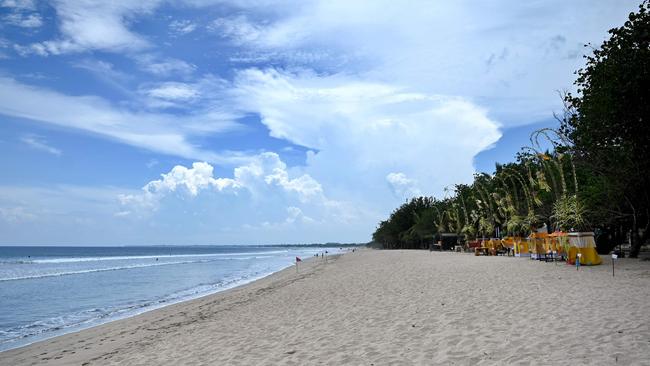
Best of Melbourne
Don't miss out on the headlines from Best of Melbourne. Followed categories will be added to My News.
Bali was already going through a lockdown of sorts when the coronavirus hit.
Hindus celebrate Nyepi Day at the end of March to mark the New Year, or Day of Silence, with mediation, fasting and silence.
All hotels, bars, nightclubs and cafes are closed, flights grounded and road traffic stopped during this time.
But after the tourist island’s restful three-day holiday, things didn’t return to normal this year.
Fears the coronavirus was spreading around the world turned Bali’s usually bustling streets in tourist hot spots Kuta and Seminyak into ghost towns.
Beaches were also closed and villages placed in lockdown.
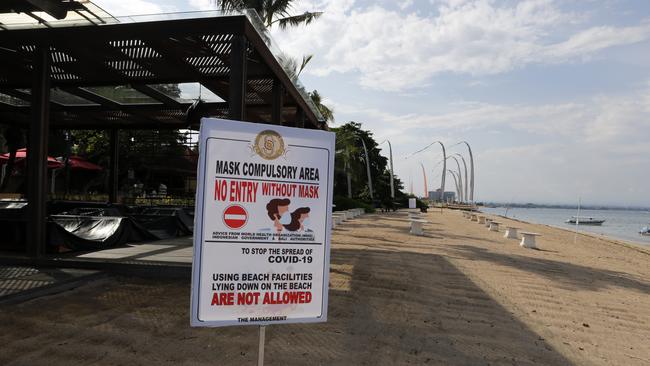
In late March Bali’s international embassies, including the Australian embassy, told travellers to return to their home countries before it was too late.
To date, the Indonesian government reported 186 cases of coronavirus in Bali, with four deaths and 75 recoveries.
Jakarta has been one of Indonesia’s worst hit cities for the virus, with 3798 confirmed cases.
Bali’s borders will remain closed until June 1, leaving Australia’s favourite holiday destination cut off from its life source — international travellers.
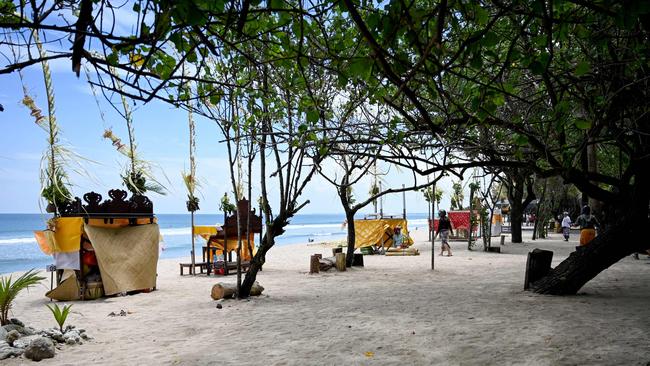
‘A STORM WAS COMING’
Melbourne-born Bali businessman Adam McAsey could see in January that coronavirus would have a big impact the island.
McAsey started talking with his business partners about the expected impact the COVID-19 outbreak would have on the hospitality industry and how he could keep his restaurants and cafes afloat.
“There was a storm coming and my team needed help and support,” McAsey said.
“I felt we’d be closing a lot of businesses down and (would have to) stop the other projects we were building. We had to make a lot of big decisions.”
McAsey owns 8 Degree Projects, which includes popular Seminyak cafes Sisterfields and Sibling, bar Bikini and burger shack Boss Man.
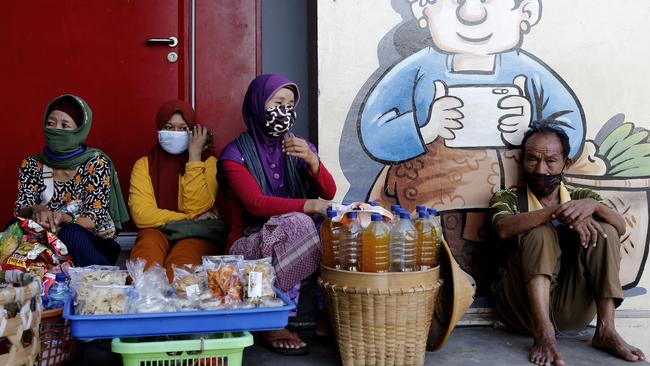
Last fortnight McAsey opened Boss Man and Sisterfields for takeaway and delivery, but said not many people were using the service.
“Unfortunately we don’t have a city of people (to provide takeaway to), they’re just not there,” McAsey said.
“We’d be serving all the expats still left on the island, but many won’t have an income and if they do, they certainly aren’t splurging on takeaway.”
McAsey is using a kitchen in Sanur, in southeast Bali, to prepare food for takeaway and delivery.
He hopes to soon open Boss Man in more populated parts of Indonesia like Jakarta and eventually Singapore, so he can feed more people via Indonesian food delivery services like Go-Jek or Grab.
HOW BALI HAS CHANGED
In busier times Bali was a buzzing holiday destination, with thousands of tourists descending on beach clubs and markets in Kuta and Seminyak.
Getting anywhere quickly was a nightmare, mainly due to heavy traffic and questionable road rules— especially during peak times.
Today the streets are a lot quieter, with most clubs, hotels and stores closed.
McAsey has had to lay-off about 400 staff, mostly locals, without pay because of the coronavirus.
Many Bali businesses have had to do the same, including fellow Melburnian Josh Herdman.
Herdman owns longstanding Seminyak eatery Sea Circus (which will turn 10 this year), bar Neon Palms and retailer Bali Boat Shed and has had to lay off 50 of his 160 staff.
Both McAsey and Herdman’s businesses employ locals and without work many Balinese families will struggle to put food on the table.
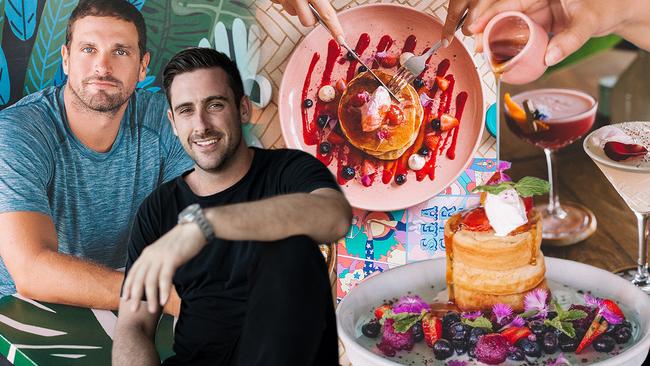
“The Balinese live mostly pay cheque to pay cheque,” McAsey said.
McAsey has slashed prices on his takeaway and delivery meals from both Sisterfields and Boss Man, while Herdman this week launched the Sea Circus Food Fund to provide free meals for Balinese families.
HOW YOU CAN HELP
Herdman didn’t see the point of running takeaway or delivery services via Sea Circus or Neon Palms for the handful of tourists remaining in Bali during lockdown.
Instead last week he launched the Sea Circus Food Fund — an initiative that’ll offer free meals to Balinese families to help them during this tough time.
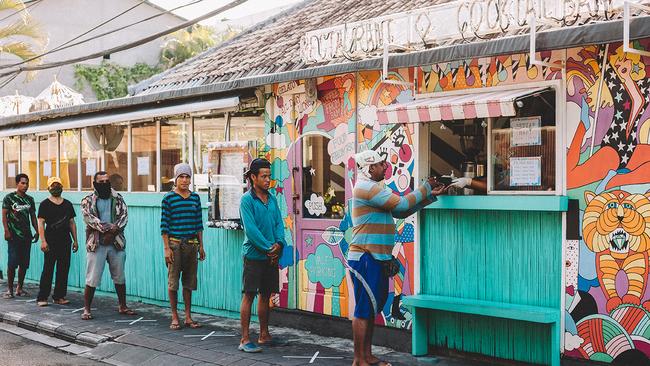
Herdman aims to serve between 500 and 3000 food packages between 11am and 4pm daily. He’s dedicated his four kitchens across his restaurant network to facilitate the service.
Meals will include Indonesian favourites like Nasi Campur, Nasi Ayam, Nasi Campur Ikan, Nasi Campsur Sayur and Nasi Campur Telur.
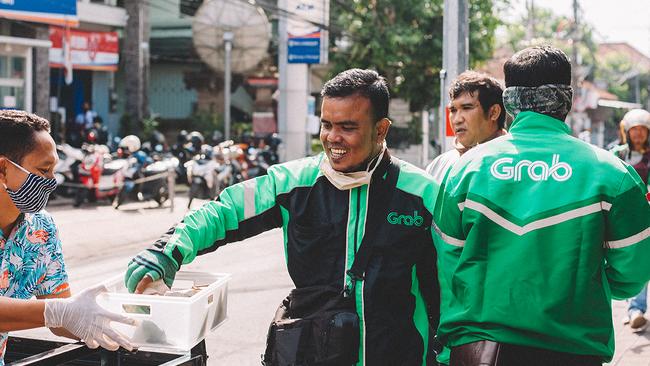
Donating $1 to the fund will feed two people, and passing on a $4 coffee feeds one family.
Herdman has committed to paying his staff a “survival salary” for the next three months and hopes donations to the food fund could help support this.
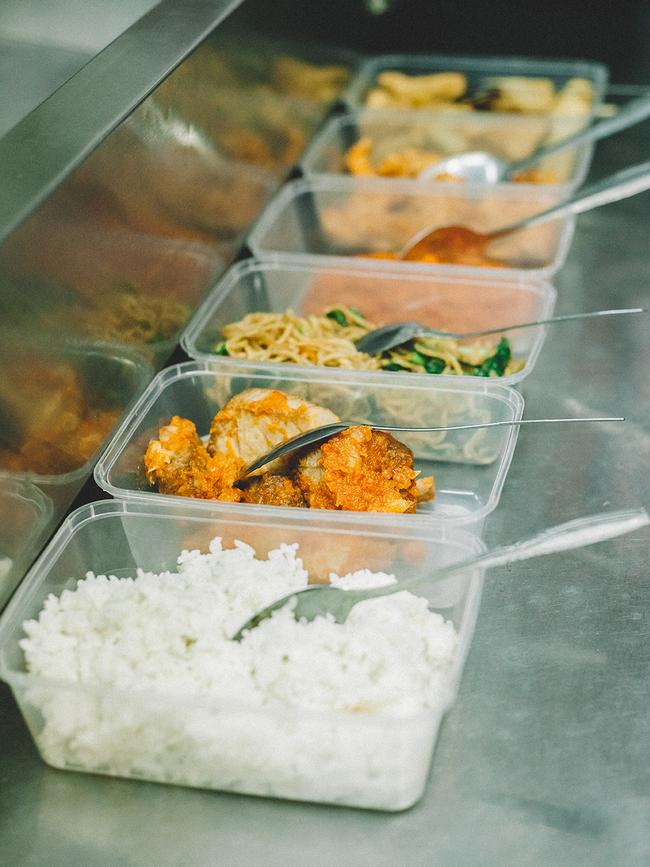
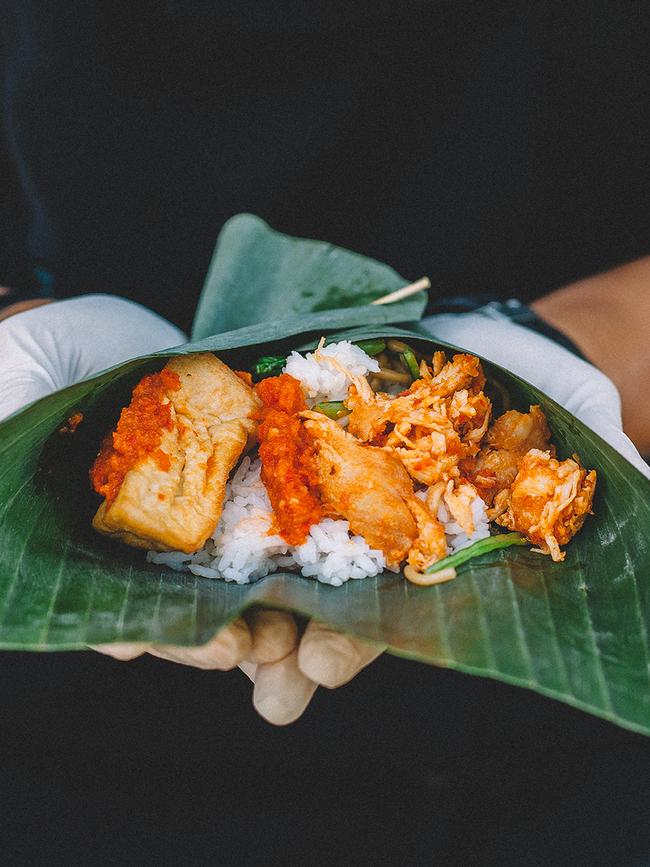
“We have the benefit of being in the restaurant industry for ten years, so we’ve saved money, but it’s brutal to see how all your money can disappear (when you stop trading),” he said.
Herdman fears Sea Circus may close indefinitely if the restrictions exceed three months and said he’d “go down with the ship” if it meant helping those less fortunate in the meantime.
To donate, visit: seacircus-bali.com.
MORE NEWS:
MELBOURNE MAN BUILDS BALI FOOD EMPIRE
